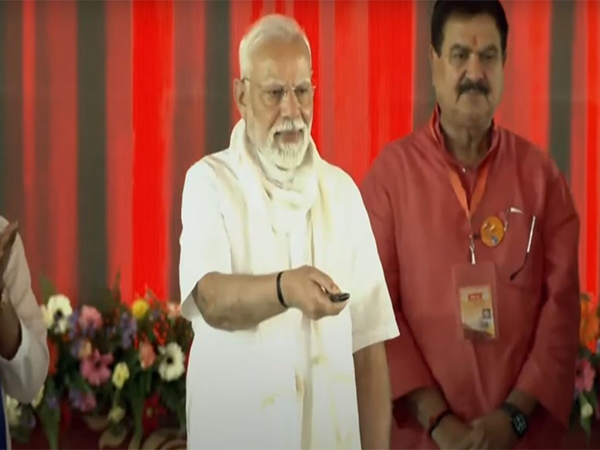A peace conference that led to conflict: the making of the Middle East

It's often thought that clashes between the East and West are a historical inevitability. That when the Romans met the Ottoman Empire, or the Crusades headed east, or when the US invaded Iraq, a pattern of siege and bloodshed was inescapable. And yet, on Day 2 of the Jaipur Literature Festival, five historians came together to discuss how the current bleak state of affairs in the Middle East can really be attributed to a single event in history.
The Great War or how we now know it, World War 1 (1914-1918). And to zero in even more sharply to one specific event, ironically called the Paris Peace Conference, in 1919.
On the face of it, this was when the victors (the Allies and associated powers) negotiated peace treaties with the German and Ottoman forces.
Watch - The internet is a disorderly 18th century salon: Jerry Pinto #JLF2016
In reality, though, it was more like a conference of European victors trying deciding which parts of the Ottoman Empire they would like for themselves. "It was more like a shopping list," said Margaret McMillan, a Canadian historian and professor at the University of Oxford, where European victors helped themselves to the spoils of war that is now the Middle East.
World War 1 was, of course, a watershed moment in history. 9 million men died. Thousands of others died of starvation as an immediate consequence of the war. There was an influenza epidemic. Empires collapsed. It even marked the end of the empire on which the sun never set. Indian, Canadian, Balkan and African soldiers travelled the world to fight on fronts and landscapes they knew nothing of.
And if you were Armenian, Polish or Arab, then along with a sense of loss, MacMillan pointed out, there was also a new sense of fluidity and possibility. The war marked the spread of new notions of self-determination, democracy, autonomy.
Notions that once seems like whimsical ideas now seems like a plausible reality. And this upsurge of Arab, Kurdish and Armenian nationalism was fuelled by British interests. And British gold.
Because the British had much to gain from resistance movements within the Ottoman Empire. A quicker death to the world's oldest empire meant fewer British lives lost. And the British, with fast-depleting resources and army, needed both Arab soldiers and all the help they could get. So they did much to encourage a sense of identity among the minority communities in the Ottoman Empire. British historian Anthony Sattin added that the British collaborated with the Sharif of Mecca to fuel an uprising. Just like the Czar of Russia pstoked nationalist ambitions in Armenia, Imperialists from the west were collaborating with the Sharif.
Watch: #60Seconds with Marlon James: 'West loves fairies & hobbits. I'm kinda tired'
The irony that the Empire - specifically one that believed that some civilizations could not rule themselves - was setting out to teach the Arabs nationalism, was not lost. But nationalism was the spirit of the times, and in the words of another panelist, Ronald Girgo Suny, author of Armenia in the Twentieth Century, "Suddenly, everyone could be a nation. Anyone could put up their hand and say hey! Here, me! A Nation!"
Eugene Rogan historian and author of The Fall of the Ottomans, pointed out that by the time the war was over and the Allies and Associates had come to the table to divvy up the Ottoman Empire, the French knew exactly what they wanted - Syria. (At the time, oil was slowly becoming the favourite fuel, slowly replacing coal. And Oil was available in Romania and Syria.) Russians wanted Constantinople. But the British were still confused. "They were just making policy on the fly, MacMillan concluded.
So they backstabbed the Kurds, leaving them at the mercy of the Turkey, and kept Gaza because it controlled the Suez Canal. Setting the pace for too many wars, and nothing but a bleak and bloody future ahead.
Sattin concluded, "I'll give you one hint of hope though. 2011 raised great expectations. And the sense of aspiration is still there. If they can overthrow 2 presidents in Egypt, they can do it again."
More in Catch - #60Seconds with Kwame Anthony Appiah: growing up homosexual in Ghana
#60Seconds with Valmik Thapar: "Tiger count hasn't increased. We're just counting better"







![BJP's Kapil Mishra recreates Shankar Mahadevan’s ‘Breathless’ song to highlight Delhi pollution [WATCH] BJP's Kapil Mishra recreates Shankar Mahadevan’s ‘Breathless’ song to highlight Delhi pollution [WATCH]](https://images.catchnews.com/upload/2022/11/03/kapil-mishra_240884_300x172.png)

![Anupam Kher shares pictures of his toned body on 67th birthday [MUST SEE] Anupam Kher shares pictures of his toned body on 67th birthday [MUST SEE]](https://images.catchnews.com/upload/2022/03/07/Anupam_kher_231145_300x172.jpg)






